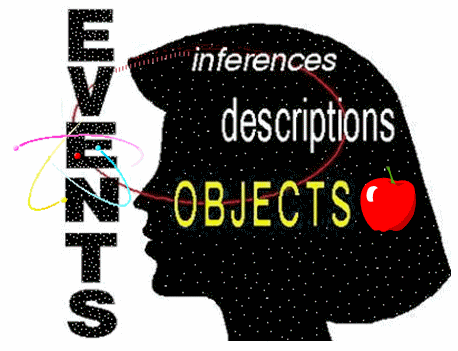
Rudeness
Written 1996 by Steven LewisA recent U.S. News and World Report poll indicated that:

How can we account for rude behavior using the system of general semantics? Some might say that rudeness is merely an uncontrolled and intensional reaction on the part of the offended. At most this can be only half the truth, however. Where there is a person who has been offended, there must be someone who is interpreted as the source of the offense. So we must analyze the semantic reactions of these other persons involved in an incident as well.
People who are rude or engage in 'thoughtless' behavior toward others evaluate by intension, not extension. They evaluate themselves as the center of the universe, as if the world were here to serve them first, as if their interpretation of the world were the only possible interpretation. Others who get in their way or behave different from them deserve the finger or worse ... getting run off the road or a gun pointed at them.
Perhaps you know such types. They talk constantly at the theatre, play ball on your lawn, let their dog bark day and night, repeatedly interrupt other people's conversations, play their stereo so loud that it shakes your walls, throw their garbage onto the street or your lawn, blow smoke in your air space, dig through your personal files .....
Those who are rude often misevaluate the risks and hurts associated with their behaviors. They may drive on your bumper or speed through highway traffic, weaving perilously in and out of cars to gain some slight advantage. That they put their life and property at greater risk does not seem to deter them; neither does their needless risk to your life and property deter them.
Rudeness frequently involves undelayed reactions that lead to a vicious cycle (positive feedback loop). One person may make an innocuous or rude remark or movement that another reacts rudely to. The respondent's rude response, in turn, triggers an undelayed rude counter-response. Before all is said and done we have a shouting match or a physical fight on our hands. If one of the parties could have delayed their response ("semantic pause") to a situation to evaluate by the extensional facts then this vicious cycle (positive feedback loop) could be avoided or broken. When we delay our reactions we have 'time' to 'put ourself in the other person's shoes' to investigate more fully what another person meant or to consider what effects our behavior might have on others.
The rude person has difficulty empathizing with others ... that is, to evaluate from alternative perspectives. A solution to the problem could be to train people in the consciousness of abstracting. Not only would this help those who have been offended to extensionalize the offense, but it would help them to prevent rude situations from getting out of control. COA could also help those doing the offending to better predict the effects of their behaviors so that they could avoid these effects.
Consciousness of abstracting includes evaluating by the extensional facts first. Other humans are part of the extensional facts of our world. And whether this world is a pleasant place to live depends in large part on how we treat each other. In this regard the golden rule becomes an extensional tool to help us make our world a better place.
Go to General Semantics Home Page ||| Go to Steven Lewis Home Page